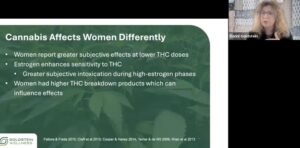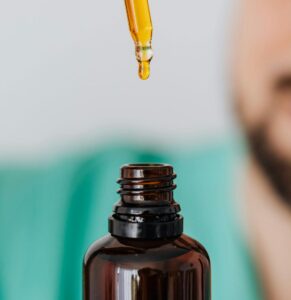Post-Traumatic Stress Disorder (PTSD) is defined by the PTSD Foundation of America as a psychiatric disorder that can occur following the experience or witnessing of lifethreatening event such as military combat, natural disasters, terrorist incidents, serious accidents, or physical or sexual assault in adult or childhood. June is PTSD Awareness Month, intended to raise public awareness about related issues, reduce associated stigma, and help to ensure that those who suffer from the invisible wounds receive proper treatment so that they may have a better quality of life.
Recent studies have pointed towards the ways in which cannabinoid therapy may help alleviate associated symptoms such as anxiety, nightmares, increased alertness, panic attacks, depression, and overwhelming emotions. Here we will discover the research-backed therapeutic actions of cannabinoids and how they may work to bring about relief.
Due to the modulating effect of Cannabidiol (CBD) on the Endocannabinoid System (ECS) and considering the many body processes that the ECS regulates, CBD has seen increased research for potential value in several conditions. One of the regulated areas are physiological functions, such as memory and emotion. Therefore, CBD has been researched for its effectiveness among generalized anxiety disorders, depression, and traumatic memories. Animal studies have shown that CBD is effective in reducing cardiovascular and anxiety responses caused by stress. For example, administered CBD lowered responses related to trauma when administered both before an event and when retrieving the aversive memory. These effects have been suggested to possibly promote the extinction of fear memories through CBD use.
In addition to the processing of traumatic events that lead to aversive memories, animal studies have also shown favorable effects of CBD in sleep disorders, another common manifestation of PTSD symptoms. CBD has been researched for its therapeutic potential for sleep disorders through limiting symptoms that may keep us awake at night (pain, anxiety, inflammation) but also may contribute to an increase in sleep duration and quality.
Confirming benefits seen in animal studies in humans is essential to efficacy and provides validation. The first evidence of CBD in the extinction of fear-based learning in humans was studied in 2013. It was found that CBD was successful in helping to extinguish the memory as well as avoid recall of an electric shock, showing the potential as a therapy for anxiety disorders.
Pertaining to several conditions across 11 adults with PTSD, the clinical benefit of CBD for symptom relief was studied in 2019. It was administered alongside medical treatment, psychiatric medications, and psychotherapy for 8 weeks. From the sample of this study, 91% of individuals saw a decrease in symptom severity
Nabilone, a synthetic cannabinoid, was approved for treatment of chemotherapy-induced nausea in 1982 by Health Canada and has been since studied for potential benefits. Researchers have found similar effects between nabilone and delta-9-tetrahydrocannabinol (THC) and benefits among those experiencing PTSD. Results from two studies, one among prison inmates and the other among varied traumatic circumstances showed statistically significant improvements in nightmare occurrences and/or severity, therefore an improvement in quality of sleep. Studies, such as these, show support for further research as well as potentially utilizing acute administrations of THC, or medical cannabis, to alleviate sleep disturbances among individuals living with PTSD.
If you are seeking data-driven answers to your questions about this cannabinoid therapy and PTSD, Realm of Caring (RoC) can help. RoC has 8 years of collected data and research based on individuals utilizing plant-based therapies. They can guide you through product selection, dosing and administration, how to talk with your doctor, and the results individuals are realizing.
The RoC Care Team is here to assist. They care a lot about helping you to find success. Reach them by calling (719) 347-5400, emailing [email protected], or by scheduling an appointment.
◼
Disclaimer
The Realm of Caring Foundation specifically invokes the first amendment rights of freedom of speech and of the press without prejudice. These statements have not been evaluated by the food and drug administration. the products discussed are not intended to diagnose, cure, prevent or treat any disease. Realm of Caring always recommends when and wherever possible that licensed local healthcare professionals be consulted.
The Realm of Caring Foundation is an independent nonprofit with its own governing board. We do not produce or sell cannabinoid products, nor do we receive funds from the sale of other company’s products.





